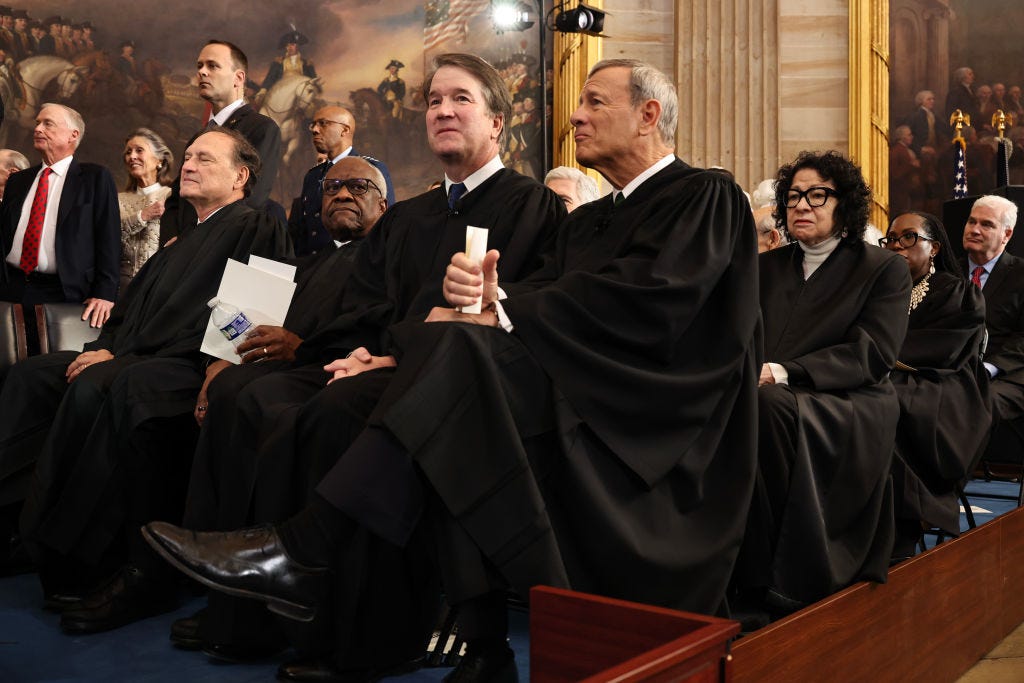Label Makers
Lawyers are in the litigation business.
“Growth for the sake of growth is the ideology of the cancer cell.”—Edward Abbey
In April, Democratic lawmakers in the Colorado House of Representatives pushed a bill that would have required retail gas station owners to affix a sticker on each of their pumps. Modeled after the warnings on cigarette packages, the message to the state’s drivers was to be stark: burning fossil fuels “releases air pollutants and greenhouse gases, recognized by the state of Colorado as being linked to significant health impacts and global heating.” The bill stalled in the Senate, in part because of a proposed amendment by Republicans that would put warning labels on electric vehicle chargers highlighting the use of child labor in battery supply chains.
The state of Colorado is bizarrely seeking to transform itself into California, home to perhaps the most warned population on earth. Companies doing business in the Golden State must deal with the infamous Proposition 65, a ballot measure that passed by a nearly 2-to-1 margin in 1986. Initially intended to warn consumers about the potential presence of genuine toxins and originally limited to a few dozen undeniably dangerous substances, the situation has predictably lost its way.
Because citizens can both advocate for substances to be added to the list and sue companies for failing to properly follow the law, Proposition 65 is now nothing more than a lawsuit mill, with citizen prosecutors—acting as little more than fronts for law firms that specialize in frivolous exploitation—having filed more than 30,000 cases since inception. This excerpt is from an investigation published in the Los Angeles Times in 2020:
“Companies in every sector of the consumer economy now routinely attach warnings for any of the more than 900 chemicals and elements covered by Proposition 65, without testing for them or attempting to reformulate products. They fear citizen-enforcer lawsuits more than they fear freaking out customers…
Litigating Proposition 65 enforcement has cost businesses more than $370 million in settlements since 2000, according to the state. New labeling requirements alone are expected to cost California companies between $410 million and $818 million over the next decade, the California Chamber of Commerce estimates.”
The report goes on to chronicle how approximately three-quarters of the settlements went to pay attorneys’ fees.
As President Trump grapples with a seemingly endless array of national temporary restraining orders (TROs) issued against his policies by obscure district court judges (predominantly appointed by his political opponents), the general public is getting a high-profile opportunity to observe a phenomenon that business leaders are all too familiar with. The US may have been founded on the concept of three co-equal branches of government, but the judiciary—and the legal profession more broadly—has steadily claimed for itself powers over the everyday lives of citizens that are wildly out of proportion.
A constitutional crisis in the US may seem both imminent and inevitable, but the impact is likely to be far broader than the political sphere. The upcoming clash presents a generational opportunity to cleanse the system of a glut of rent-seekers who are severely impeding innovation and industry. The numbers are astounding, so let’s unpack them with a few prominent examples.



